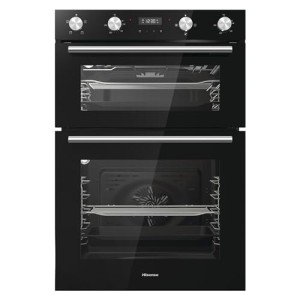Guide To Builtin Ovens: The Intermediate Guide To Builtin Ovens

본문
The Rise of Built-in Ovens: Enhancing Modern Kitchens
In the ever-evolving world of home enhancement, built-in ovens have become a staple in modern kitchen design. These appliances not just use a sleek and smooth aesthetic but also contribute substantially to the functionality and performance of home cooking. This post looks into the various elements of built in ovens for sale-in ovens, including their benefits, types, setup factors to consider, and upkeep, in addition to often asked questions to provide a thorough overview.
What is a Built-in Oven?
A built-in oven is a device designed to be installed into kitchen cabinetry, giving it a structured appearance and maximizing counter area. Unlike conventional freestanding ovens, which stand alone and are typically large, built-in ovens fit flush with cabinets for a more integrated look. They are readily available in various sizes, styles, and features, dealing with a vast array of cooking requirements and kitchen styles.
Advantages of Built-in Ovens
Built-in ovens included many advantages that make them attractive to property owners. Below are some of the essential advantages:

- Space Efficiency: Built-in ovens save counter area while enhancing kitchen layouts.
- Personalized Design: They can be integrated hob and oven into cabinets, enabling homeowners to personalize visual appeals according to individual taste.
- Improved Performance: Many built-in ovens come geared up with advanced cooking innovations, enabling for much better heat circulation and faster cooking times.
- Accessibility: Their setup at eye level makes it much easier to examine food without bending down, supplying higher convenience and security.
- Resale Value: A contemporary, well-designed kitchen can improve home value, making built-in ovens a financial investment worth considering.
Types of Built-in Ovens
Built-in ovens can be classified based upon their design and function. The following list details the common kinds of built-in ovens offered on the marketplace:

- Single builtin ovens (www.xuetu123.com): A standard design that features one cooking compartment.
- Double Ovens: These included 2 separate compartments, which enable cooking several meals at different temperature levels.
- Wall Ovens: Installed into the wall for Builtin ovens a space-saving solution, these ovens offer convenience and ease of access and can be either single or double.
- Steam intergrated ovens: These utilize steam for damp cooking and are often preferred for much healthier meal preparation.
- Convection Ovens: Designed with a fan that flows hot air, making sure even cooking and browning.
| Type | Description | Ideal For |
|---|---|---|
| Single Oven | One cooking compartment for basic baking and roasting. | Small homes and kitchens. |
| Double Oven | 2 compartments for synchronised cooking of various dishes. | Large households with varied menus. |
| Wall Oven | Built into the wall for simple access. | Space-conscious kitchen areas. |
| Steam Oven | Cooks using steam for much healthier options. | Health-conscious individuals. |
| Stove | Circulates hot air for even cooking and quicker results. | Baking enthusiasts and chefs. |
Installation Considerations
Choosing to set up a built-in oven includes several considerations to make sure that it fits seamlessly within the kitchen. Essential elements include:
- Cabinet Dimensions: Accurate measurement of the cabinet space needed for the oven is crucial for a correct fit.
- Power Supply: Built-in ovens typically require a devoted power supply; seeking advice from a licensed electrical contractor might be needed.
- Ventilation: Ensure that the oven's ventilation requirements are fulfilled to promote safe operation.
- Regional Building Codes: Compliance with local codes is vital when installing any kitchen appliance.
It's highly recommended that installation be carried out by specialists to ensure safety and adherence to producer requirements.
Upkeep of Built-in Ovens
Preserving built-in ovens is necessary to guarantee their longevity and operation. Below are some ideas for effective upkeep:
- Regular Cleaning: Wipe down surface areas after each use to prevent accumulation; consider self-cleaning options if offered.
- Inspect Seals: Inspect the oven door seals routinely for wear and tear to maintain efficiency and prevent heat loss.
- Adjust Temperature: Occasionally check and change oven temperature settings if cooking results are irregular.
- Expert Servicing: Schedule routine upkeep with certified service technicians for electrical components and deeper cleansing.
Frequently Asked Questions (FAQs)
Q1: How do I choose the best size built-in oven for my kitchen?
A1: Measure the available cabinet area and think about the cooking routines of your household. Single or double ovens are typical options based on meal preparation needs.
Q2: Are built-in ovens more energy-efficient than freestanding ones?
A2: built in range-in ovens can be more energy-efficient due to better insulation and advanced cooking technology; however, real performance depends on the specific design and usage.
Q3: Can built-in ovens be set up anywhere in the kitchen?
A3: Built-in ovens need specific cabinets and may require a devoted source of power, so planning their placement carefully within the kitchen layout is essential.
Q4: What kind of upkeep do built-in ovens require?
A4: Regular cleaning, examining door seals, calibrating temperature levels, and expert maintenance as needed are all parts of correct maintenance.
Built-in ovens are a remarkable addition to contemporary kitchens, offering both visual and useful benefits. Their space-saving design, personalized options, and advanced functions accommodate varied cooking needs. When considering a built-in intergrated oven and hob, house owners must consider their particular cooking choices, kitchen design, and upkeep capabilities. By doing so, they would be making a valuable investment in their home, increasing both performance and design.







댓글목록0
댓글 포인트 안내